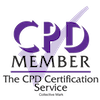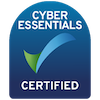Consent Matters
Course Overview
This qualification is designed for individuals looking to expand their knowledge of consent, whether for personal or professional development. It is particularly valuable for those working or studying in fields such as counselling, community work, youth work, or volunteering.
Throughout the course, learners will gain a deeper understanding of consent, including its legal definitions, the societal myths and misconceptions surrounding it, and the importance of gaining clear consent in all situations. The course will also cover how to respond appropriately to instances involving consent, including how to signpost individuals for further support and assistance. By the end of the unit, learners will have the knowledge and confidence to navigate consent-related issues, support others effectively, and promote respectful, informed decision-making in various settings.
Key Information
Course Length
10 hours
For Individuals
Benefits
- Delivered through online or blended learning
- Designed specifically for colleges and sixth forms
- Flexible personal development and curriculum enhancement
- Aligned with current education inspection frameworks
- Enrich 16-19 study programmes
Cost and Funding Information
Course Price
£30.00
Study this course
Buy the course today and begin your journey to qualification
With this course, your learners will learn how to:
-
Section 1: What is consent?
- Explore the legal definition of consent, as defined by Section 74 of the Sexual Offences Act 2003
- Understand examples of both verbal and non-verbal consent
- Learn about the definitions of ‘Capacity to Consent’ and ‘Freedom of Consent’
- Gain an understanding of the different ways an individual can give consent
- Describe the legal definitions of rape, assault by penetration, sexual assault, and sexual harassment under UK law
- Understand the consequences of breaking these laws
- Identify common societal myths and misconceptions about rape
- Understand the importance of gaining consent in any situation
- Identify signs that indicate someone is consenting
- Learn the importance of reflection and how to use scenario-based case studies for self-reflection
- Explore the five F’s (fight, flight, friend, flop, and freeze) as common survival responses
- Understand where and how to access support for those affected by abuse
- Learn how to support individuals who disclose their experiences of abuse
 For Businesses
For Businesses
With our combination of market-leading learning resources, exceptional customer service and award-winning LMS solutions, we are confident we can assist with your education and training delivery needs.
Enquire nowNeed some more information?
Check out our Frequently asked question via the link below
















